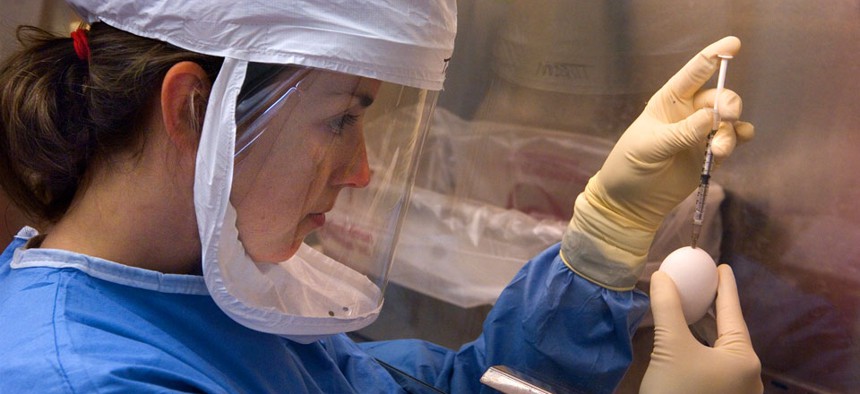
CDC file photo
Obama Team Launches Global Partnership Aimed at Battling Pandemics
To stop epidemics such as the swine flu, there has to be a global commitment to reporting and responding to outbreaks, the White House says.
The U.S. is launching a worldwide effort to prevent, detect, and respond to the outbreak of infectious diseases.
Health and Human Services Secretary Kathleen Sebelius joined Lisa Monaco, assistant to the president for homeland security and counterterrorism, to announce the Global Health Security Agenda, an effort of 26 nations and three international organizations to stop loss of life, avert serious economic consequences associated with mass infection, and block bioterror threats.
"We know that outbreaks anywhere in the world are only a plane ride away," said Laura Holgate, senior director at the National Security Council.
Thursday's announcement from the White House mirrors the efforts of the the World Health Organization, which set out International Health Regulations in 2005 in an effort to create a global reporting and response system for public health risks. Less than one in five countries adheres to WHO standards, and Holgate said they're "putting political highlights" on it.
"The U.S. is putting resources toward this and others should do the same," she said.
Roughly $40 million will come out of existing U.S. resources to support the efforts in 2014 of 10 low- and middle-income countries that are working to meet the International Health Regulations laid out by WHO, according to Tom Frieden, director of the Centers for Disease Control and Prevention. In 2015, Frieden added, the president plans to allocate $45 million to the CDC for the explicit purpose of global health security.
There's already promising results in one of the pilot programs the U.S. has launched, according to Frieden. The CDC worked with Uganda—a country that has dealt with numerous outbreaks, including Ebola and cholera—to transport samples from potentially infectious patients for remote testing, and used text messaging to track the cases. The CDC has already measured improvements in lab testing and interoperabillity of information and management systems in Uganda.
The goal of the worldwide effort is "to slow the spread of antimicrobial resistance, establish national biosecurity systems, reduce zoonotic disease transmission, increase routine immunization, establish and strengthen national infectious disease surveillance and laboratory systems, and develop real-time electronic reporting systems and emergency operations centers," according to a press release.
The White House plans to meet with the nations committed to its health agenda to measure progress this fall.







